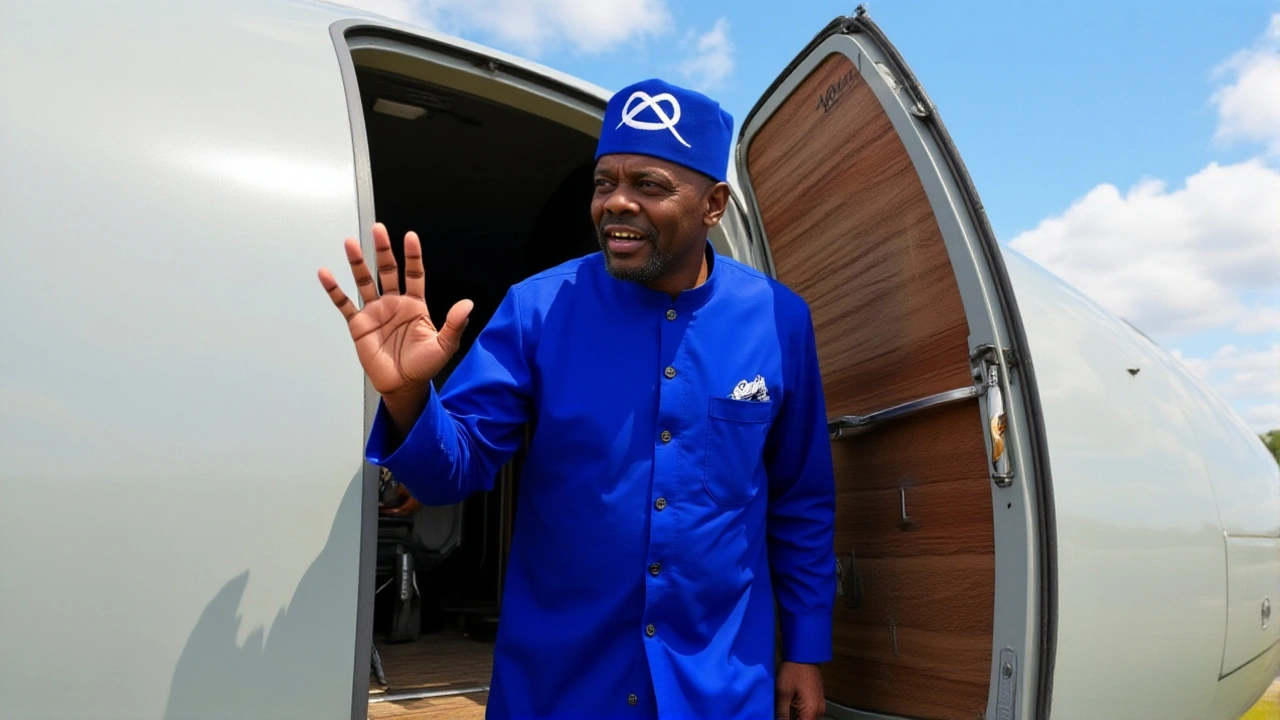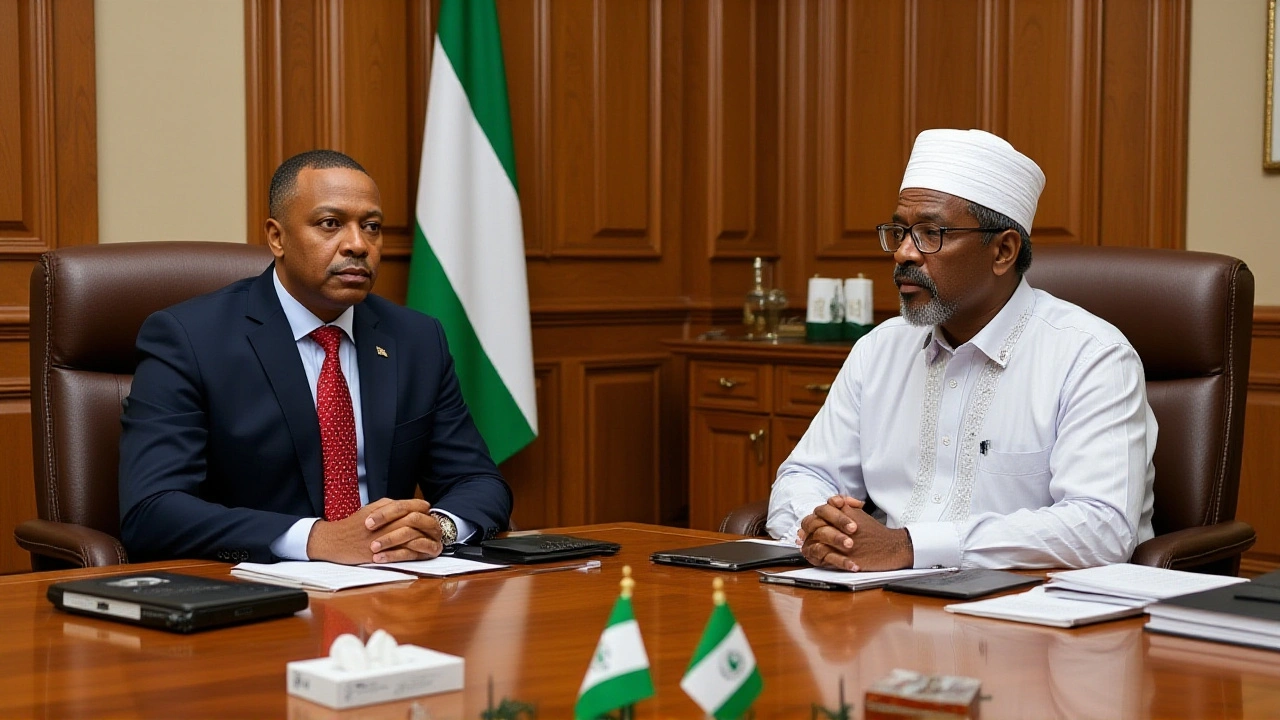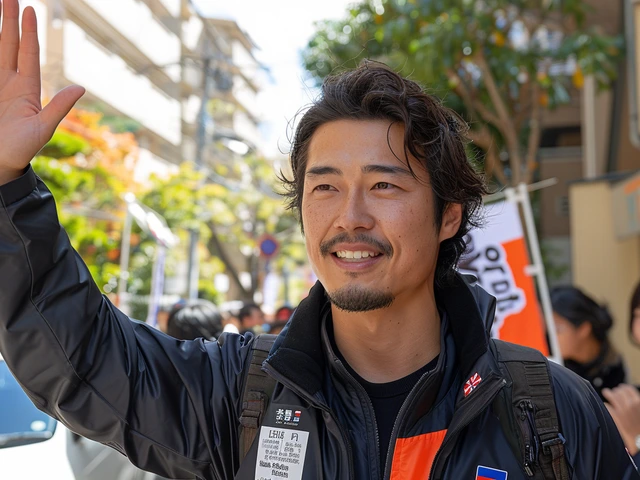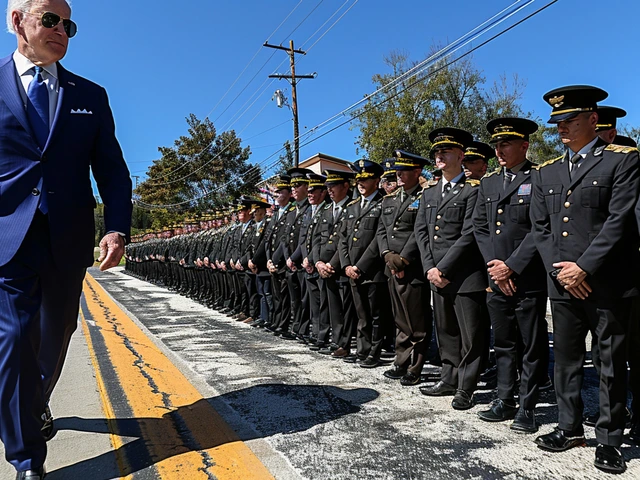On Friday night, November 21, 2025, Oluwatosin Adeola Ajayi, Director General of the Department of State Services, slipped quietly into the Presidential Villa in Abuja for an emergency briefing with President Bola Ahmed Tinubu. The meeting wasn’t ceremonial. It was a last-resort plea. Across northern Nigeria, armed gangs had kidnapped over 200 students in just the past three weeks. Schools in Katsina, Kaduna, and Zamfara had shut their gates—not out of holiday, but out of fear. And now, the man responsible for domestic intelligence was sitting across from the president, holding a folder full of grim numbers and unanswered questions.
The Numbers No One Wants to Acknowledge
31,821 people killed. That’s not a statistic—it’s a graveyard. Between May 2015 and April 2023, non-state actors claimed that many lives across Nigeria, according to data from the Nigeria Security Tracker, cited by former Minister Rotimi Amaechi in a scathing November 22, 2025, interview with Premium Times. And that’s just the dead. More than 5,200 Nigerians were abducted in 2021 alone—more than the total from 2014 to 2019 combined. Children. Farmers. Worshipers. Truck drivers on the Abuja-Kaduna highway. No one is safe.Amaechi didn’t mince words: “Schools under siege, leadership missing.” He pointed to the Safe Schools Declaration, a 2018 international commitment Nigeria signed to protect education during conflict. N16 billion was allocated in 2022 to implement it. What happened? Nothing. The program, once hailed as a blueprint, now gathers dust. “We cannot claim to be serious about protecting schools while abandoning a critical national structure designed to do exactly that,” he said.
The Broken Machine
Behind the headlines is a system in gridlock. An unnamed security official told Premium Times they’d requested approval for an integrated surveillance system—something that could track movements, predict attacks, and coordinate responses in real time. The request? Approved. The procurement? Stuck in bureaucratic purgatory for 14 months. “I am devastated,” the official said. “We only asked for approval. The cost of what we’ve lost is more than N3 billion.”That’s not just money. That’s lives. A child in Kebbi taken last month. A teacher in Bauchi shot trying to shield her class. A village church burned during Friday prayers. The system isn’t failing because of lack of will—it’s failing because of broken processes. Inter-agency coordination? Nonexistent. Budget releases? Delayed by red tape. Intelligence sharing? Siloed between the Department of State Services, the Defence Intelligence Agency, and the National Intelligence Agency.
President Tinubu has been clear: he ordered security chiefs to “flush out” terrorists and deliver “tangible results.” But results require resources. And resources require speed. And speed? That’s what’s missing.
When Security Becomes an Economic Crisis
Amaechi didn’t just talk about guns. He talked about GDP. “Security, not just guns—it is economic stability,” he said. When children are snatched from classrooms, education becomes a risk, not a right. When parents can’t send their kids to school, mothers drop out of the workforce to stay home. When farmers can’t reach markets, food prices spike. When highways are unsafe, trade slows. The ripple effect is catastrophic.Imagine a generation of Nigerian children who never learned algebra because their school was bombed. Or a future engineer who never graduated because he was held for ransom in a forest for six months. That’s not hypothetical. It’s happening. And it’s costing Nigeria more than lives—it’s costing its future.

What’s Next? Silence, But Not Stillness
No press release followed the November 21 briefing. No statement from the Presidential Villa. No timeline announced. But the fact that Ajayi was called in at all speaks volumes. This wasn’t routine. It was a crisis call.Special Adviser Bayo Onanuga, who arranged the meeting, had previously said the National Security Adviser was “in contact with security officials on the ground to get our kidnapped children released.” But contact doesn’t mean rescue. And release doesn’t mean prevention.
What happens next? If the DSS doesn’t get the tools, the authority, and the speed to act, the next briefing won’t be about abductions. It’ll be about mass protests. Or worse—another wave of children disappearing into the bush, and no one left to ask why.
Frequently Asked Questions
Why hasn’t the Safe Schools Declaration worked in Nigeria?
Despite N16 billion allocated in 2022, implementation collapsed due to poor coordination between federal and state agencies, inconsistent funding releases, and lack of on-ground security infrastructure. The program’s framework exists on paper, but without trained personnel, surveillance, or rapid response teams at schools, it’s symbolic at best. Experts say only 12% of allocated funds reached frontline schools.
Who is responsible for Nigeria’s intelligence coordination?
The National Security Adviser is legally tasked with coordinating the Department of State Services, Defence Intelligence Agency, and National Intelligence Agency. But in practice, each agency operates in silos, with rivalries and mistrust blocking intelligence sharing. This fragmentation is a key reason attacks go unanticipated.
How many children have been abducted in Nigeria since 2020?
According to the International Centre for Investigative Reporting (ICIR), over 12,000 children have been abducted since 2020, with 5,200 occurring in 2021 alone—a record. The majority were taken from schools in the North-West and North-Central regions. Less than 30% have been recovered, and many are held for ransom or forced into labor or extremist groups.
Why did the DSS Director General personally brief the president?
The DSS handles domestic intelligence, including counterterrorism and internal threats. With school abductions escalating beyond the capacity of military forces alone, and with intelligence suggesting organized syndicates are now targeting education hubs, Ajayi’s direct briefing signals the crisis has reached the highest level. It’s a sign the NSC may be overwhelmed—and that the president is being asked to intervene directly.
Is there any precedent for this level of insecurity targeting schools?
Yes. The 2014 Chibok kidnapping of 276 girls by Boko Haram was the world’s most infamous case. But what’s different now is the scale and frequency. Attacks are no longer isolated. They’re coordinated, decentralized, and happening weekly. In 2023, over 40 schools were attacked across seven states. The pattern suggests a shift from ideological terrorism to criminalized kidnapping-for-profit, with insurgents and bandits now operating as hybrid networks.
What can ordinary Nigerians do in response?
While systemic change requires government action, citizens can pressure lawmakers through petitions, town halls, and social media campaigns demanding transparency on security spending. Local communities have formed vigilante groups in some areas, but these are not sustainable. The most powerful tool remains holding elected officials accountable—especially those who ignore education as a national security issue.




The numbers are horrifying, but what's worse is the silence afterward. No press release, no timeline, no accountability. This isn't just a security failure-it's a leadership vacuum. We've had enough of symbolic gestures and bureaucratic inertia. The DSS needs real authority, not another meeting in Abuja.
Why are we even surprised anymore? 😔 The same people who promise change are the ones sleeping on the job. My cousin’s school got raided last year and no one even showed up. They’re just waiting for the next headline to disappear.
There’s a deeper truth here: education is the foundation of any nation, and when you turn schools into battlegrounds, you’re not just attacking children-you’re erasing the future. This isn’t just about guns or intelligence failures. It’s about whether we value our next generation enough to protect them. The answer, so far, has been a resounding no.
I used to teach in Kaduna. The fear in the kids’ eyes when the bell rang early-that’s not something you forget. We need boots on the ground, not just reports. And someone needs to answer why the N16 billion vanished.
The structural failure is systemic: institutional fragmentation, inter-agency distrust, and procurement paralysis. The NIA, DSS, and DIA operate as siloed entities with incompatible data architectures, rendering real-time threat mitigation impossible. The absence of a unified command-and-control framework renders all tactical interventions reactive, not proactive. This is not negligence-it’s institutional decay.
It breaks my heart to think about the little ones who’ll never go back to class. Their dreams got stolen along with their notebooks. We need to stop talking and start doing. Someone has to step up before another village loses its future.
Why are we still acting like this is new? This has been going on for a decade and nobody did anything. Meanwhile, the politicians are on vacation in London. Nigeria needs a strong hand-not more meetings. Time to lock up the corrupt and let the army do their job.
This is the end of Nigeria as we know it. No more schools. No more future. Just silence and graves. The president is asleep. The system is dead. Wake up, people.
Imagine if this happened in the US or UK. The whole world would be screaming. But here? We’ve normalized it. We’ve become numb. Maybe we need to stop waiting for the government to fix this and start building our own networks-local patrols, community watch groups, digital alert systems. Sometimes the solution isn’t in Abuja. It’s in the village.
Wait, you think the DSS is the problem? Bro, the real issue is the politicians who let this happen. They’re the ones taking bribes from bandits. You think those kidnappers just show up out of nowhere? They’ve got connections. Look at the contracts. Look at the money. It’s all connected.
lol the dss is the problem? theyre just doing what theyre told. the real issue is that the president doesnt even know where kaduna is. also the safe schools thing was always a scam. 16 billion? more like 16 billion stolen. and why is everyone acting shocked? we all knew this was coming. wake up people.
Let’s be clear: this isn’t about poor leadership. It’s about foreign agendas. The West wants Nigeria weak. They fund NGOs that push fake narratives about insecurity. We need to stop listening to outsiders and start trusting our own institutions. We’ve been through worse and we’ll survive this too.
Why are we wasting time talking? Just send in the army. Bomb the forests. Kill the bandits. That’s it. No more meetings. No more reports. Just action. If you’re not with action, you’re with the kidnappers.
Let me ask you this: what if the abductions aren’t random? What if they’re part of a larger demographic engineering project? The data shows a pattern-targeted regions, specific age groups, schools with high literacy rates. This isn’t criminality. It’s a slow-motion genocide disguised as chaos. The DSS briefing? A distraction. The real agenda is population control. And the media? Complicit.